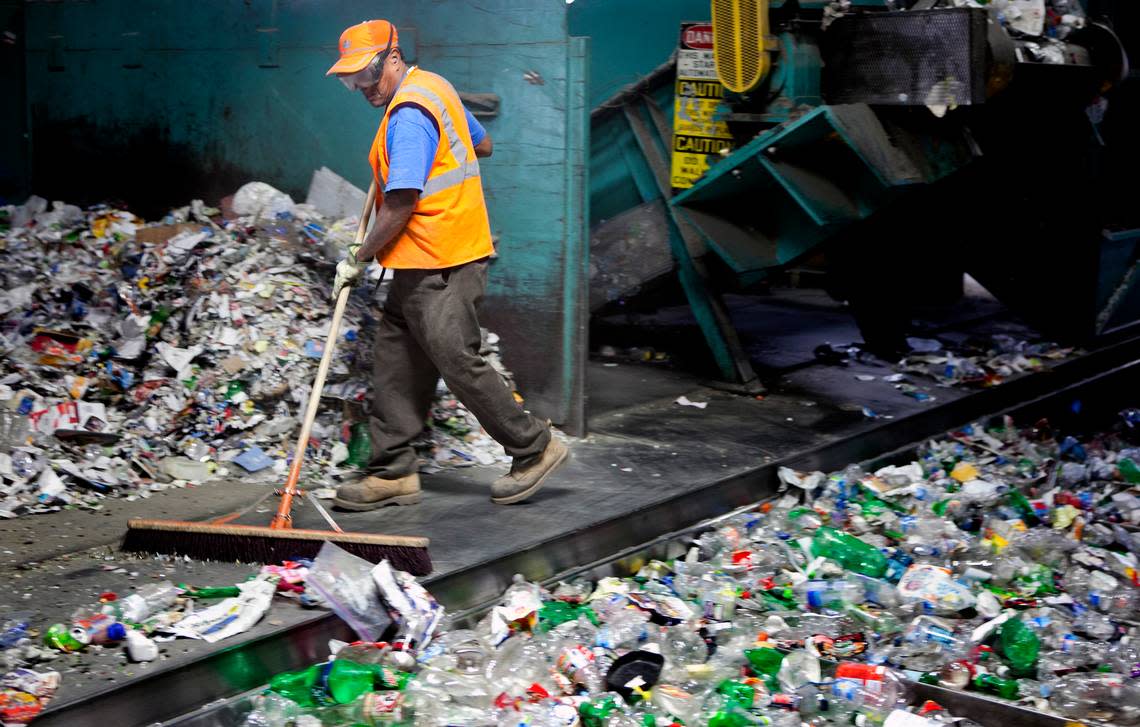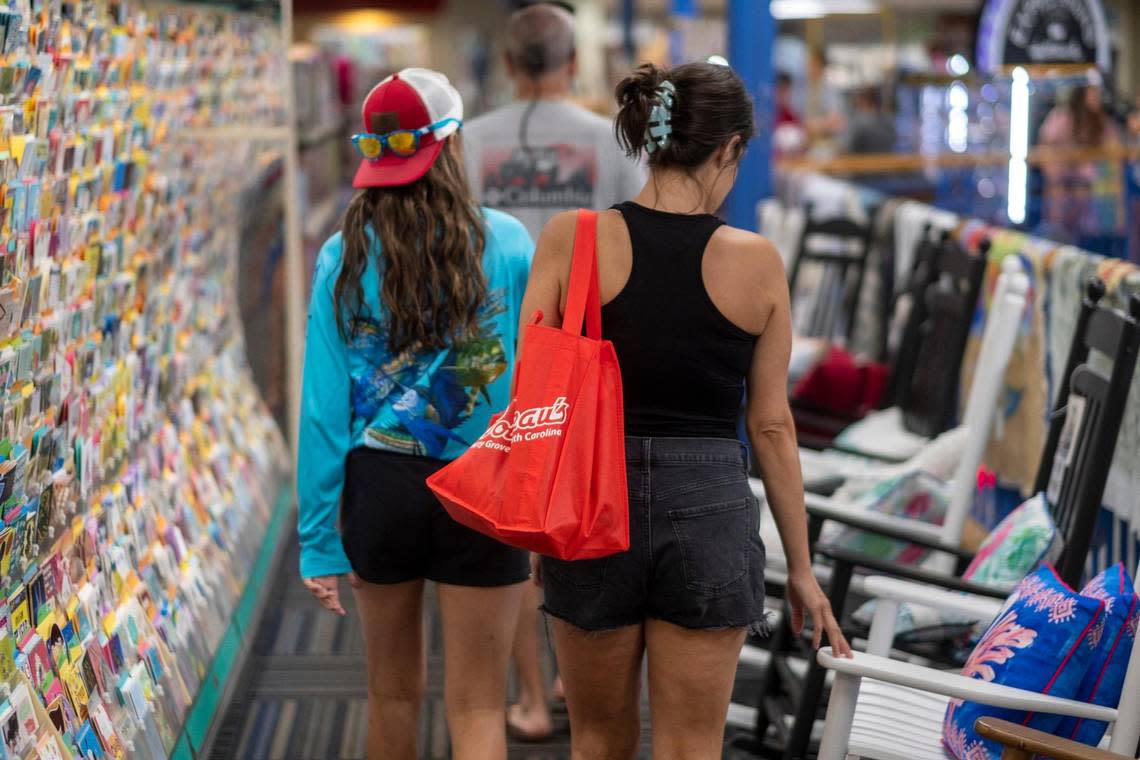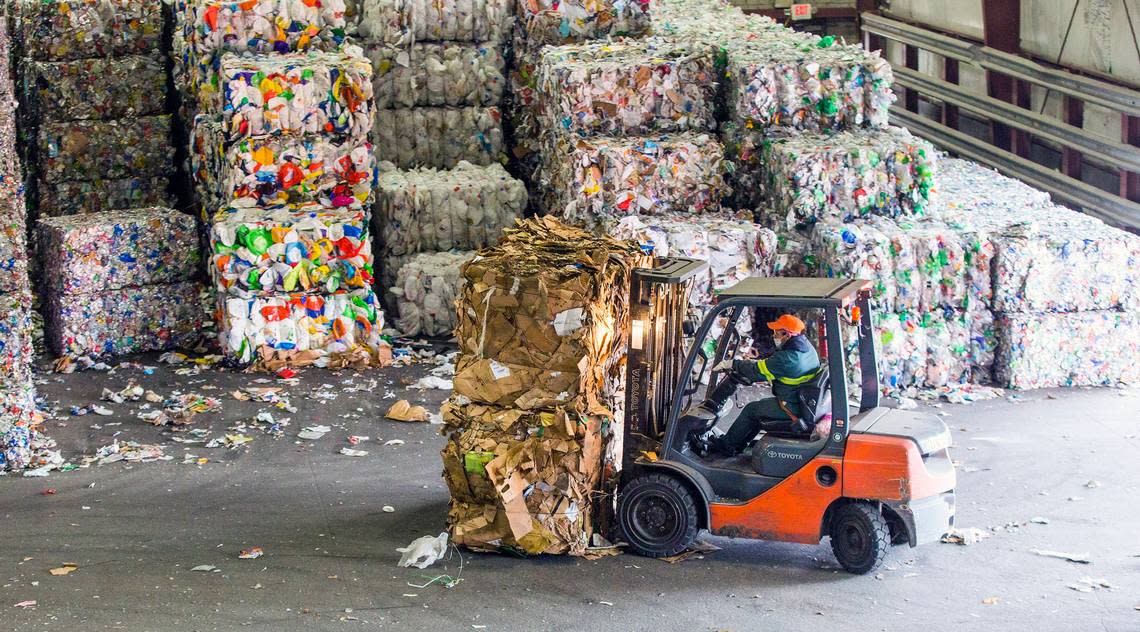Asheville was debating plastic bag ban, Durham a 10-cent fee. Then the state stepped in.
As two North Carolina cities debated banning plastic bags or requiring businesses to charge for them, state leaders passed a law that prevents them from doing so.
Michelle Nowlin, a supervising attorney at the Duke Environmental Law and Policy Clinic, said the change is “designed directly to punish communities” like Durham and Asheville that are trying to “break free from moneyed interests and do right by their citizens.”
The provision takes up about one page in the newly passed 625-page state budget. It outlaws any rules that “restrict, tax, charge a fee, prohibit or otherwise regulate the use, disposition, or sale of an auxiliary container.”
The definition of “auxiliary container” includes bags, take-out containers, cutlery, straws and anything else used to transport goods or consume food and beverages.

The North Carolina Retail Merchants Association defended the provision in a statement to TV station WLOS, based in Asheville.
“One of the reasons North Carolina remains a great state to do business in is the consistency of rules and regulations throughout the State. This provision ensures consistency ... instead of a patchwork of rules city by city,” the organization stated.
“We all want a clean environment, and we believe that consumer education remains the best solution,” the statement continued.
The EPA reports that plastic waste generation has skyrocketed to over 35 million tons a year, with a recycling rate below 10%.
“We are absolutely not going to recycle our way out of this problem,” said Nancy Lauer, a scientist and professor with the Duke clinic.

Outer Banks, Asheville, Durham
It’s not the first time the legislature has inserted itself in the debate over thin plastic bags.
The Outer Banks passed plastic bag restrictions in 2009, but Republican state legislators in 2017 passed a bill, over Democratic Gov. Roy Cooper’s veto, that repealed them, The Outer Banks Voice reported.
Asheville was poised to act this fall, with city staff preparing a recommendation for the City Council on reducing single-use plastics.
In a city survey, 80% of residents supported a ban on plastic bags and food containers made from polystyrene (commonly known by the brand name Styrofoam).
Durham has yet to agree.
A City Council subcommittee recommended a yearlong education campaign followed by a 10-cent disposable bag fee (paper and plastic) paired with a ban on polystyrene and restrictions on disposable plasticware and packaged condiments.
But there was skepticism even before the legislature intervened.
“I just want to be careful that we don’t create the narrative that the victims are now responsible for fixing the problem. And certainly, 10 cents a bag is not going to fix the problem of multinational corporations engaging in environmental racism,” Mayor Pro Tem Mark-Anthony Middleton said.

Legal challenges possible
It’s not yet clear whether Asheville or Durham will test the state’s preemption.
Nowlin said conversations around an amendment repealing the change are underway and pledged her clinic’s resources if prohibitions invite lawsuits.
The Southern Environmental Law Center argues the new law is unconstitutional, saying that a prohibition on “any regulation” would interfere with the recycling and trash programs obligated by the North Carolina Solid Waste Management Act.
“How can a local government run these programs without regulating the ‘disposal’ of items commonly found in waste and recycling streams, including packages, containers, and bottles?” senior attorney Susannah Knox wrote in a memo shared with The News & Observer.
“This proposed language would put North Carolina cities and counties in an impossible bind,” Knox said.
